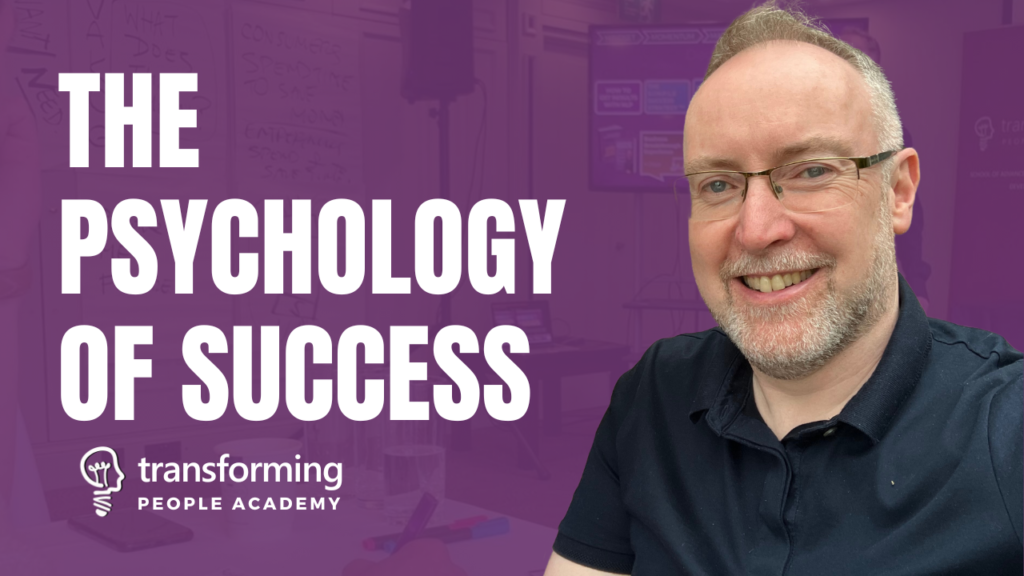Success is not just a destination; it’s a journey of continuous growth and self-improvement. Neuro-Linguistic Programming (NLP) offers powerful tools and concepts to navigate this journey effectively. In this article, we’ll explore four key areas of success through the lens of NLP: Mindset, Motivation, Messaging, and Mastery.
Mindset: The Foundation of Success
Your mindset shapes your reality. NLP provides several presuppositions that can transform your mindset and set you up for success. Here are four crucial ones:
- The Map is Not the Territory: Our perception of reality is not reality itself. We all have unique mental maps based on our experiences, beliefs, and values. Recognizing this allows us to be more open-minded and adaptable.
- There is No Failure, Only Feedback: Every outcome provides valuable information. Instead of seeing setbacks as failures, view them as opportunities to learn and adjust your approach.
- The Meaning of Communication is the Response You Get: Effective communication is about what the listener hears, not just what the speaker intented. If you’re not getting the desired response, change your approach.
- People Always Make the Best Choice They Can with the Resources They Have Available: This presupposition fosters empathy and understanding, both for ourselves and others. It encourages us to focus on expanding our resources rather than dwelling on past decisions.
Motivation: The Engine of Success
Motivation is what drives us towards our goals. In NLP, we recognize two types of motivation:
- Towards Motivation: This is when we’re driven by what we want to achieve. It’s about moving towards our goals and desires.
- Away From Motivation: This is when we’re motivated to avoid negative outcomes or move away from what we don’t want.
Understanding your motivational style can help you set more effective goals.
NLP emphasizes the importance of well-formed outcomes, which are:
- Stated in the positive
- Specific and measurable
- Within your control
- Ecologically sound (considering the wider impact)
- Appropriately contextualized
By setting goals that align with your motivational style and follow these criteria, you’re more likely to stay committed and achieve success.
Messaging: The Language of Success
Effective communication is crucial for success in any field. NLP offers two powerful models for enhancing your communication:
- The Meta Model (Precision Model): This model helps you gather high-quality information by challenging vague or distorted language patterns. It involves asking specific questions to clarify meaning, recover missing information, and challenge limiting beliefs.
- The Milton Model (Patterns of Persuasion): Named after the famous hypnotherapist Milton Erickson, this model uses intentionally vague language to bypass conscious resistance and speak directly to the unconscious mind. It’s particularly useful in coaching, therapy, and persuasive communication.
By mastering these models, you can become more influential in your communication, whether you’re leading a team, selling a product, or coaching clients.
Mastery: The Pinnacle of Success
True success comes with mastery, but the journey to mastery is not always straightforward. The Dunning-Kruger effect illustrates this:
- At the beginning, we may overestimate our abilities (the peak of “Mount Stupid”)
- As we learn more, we realize how much we don’t know (the “Valley of Despair”)
- With persistent effort, we gradually improve and gain confidence
- Eventually, we reach a high level of competence, often coupled with the humility of knowing there’s always more to learn
NLP offers a powerful approach to accelerate this journey to mastery: modeling. This involves:
- Finding someone who excels in the skill you want to master
- Observing and analyzing their behaviors, thought processes, and strategies in detail
- Practicing and integrating these elements into your own approach
By systematically modeling excellence, you can rapidly improve your skills and reach higher levels of mastery in any area of life.
In conclusion, success is a multifaceted journey that requires the right mindset, motivation, communication skills, and a commitment to mastery. By applying these NLP concepts and techniques, you can unlock your full potential and achieve the success you desire. Remember, the path to success is not about perfection, but about continuous growth and improvement. Embrace the journey, and success will follow.

